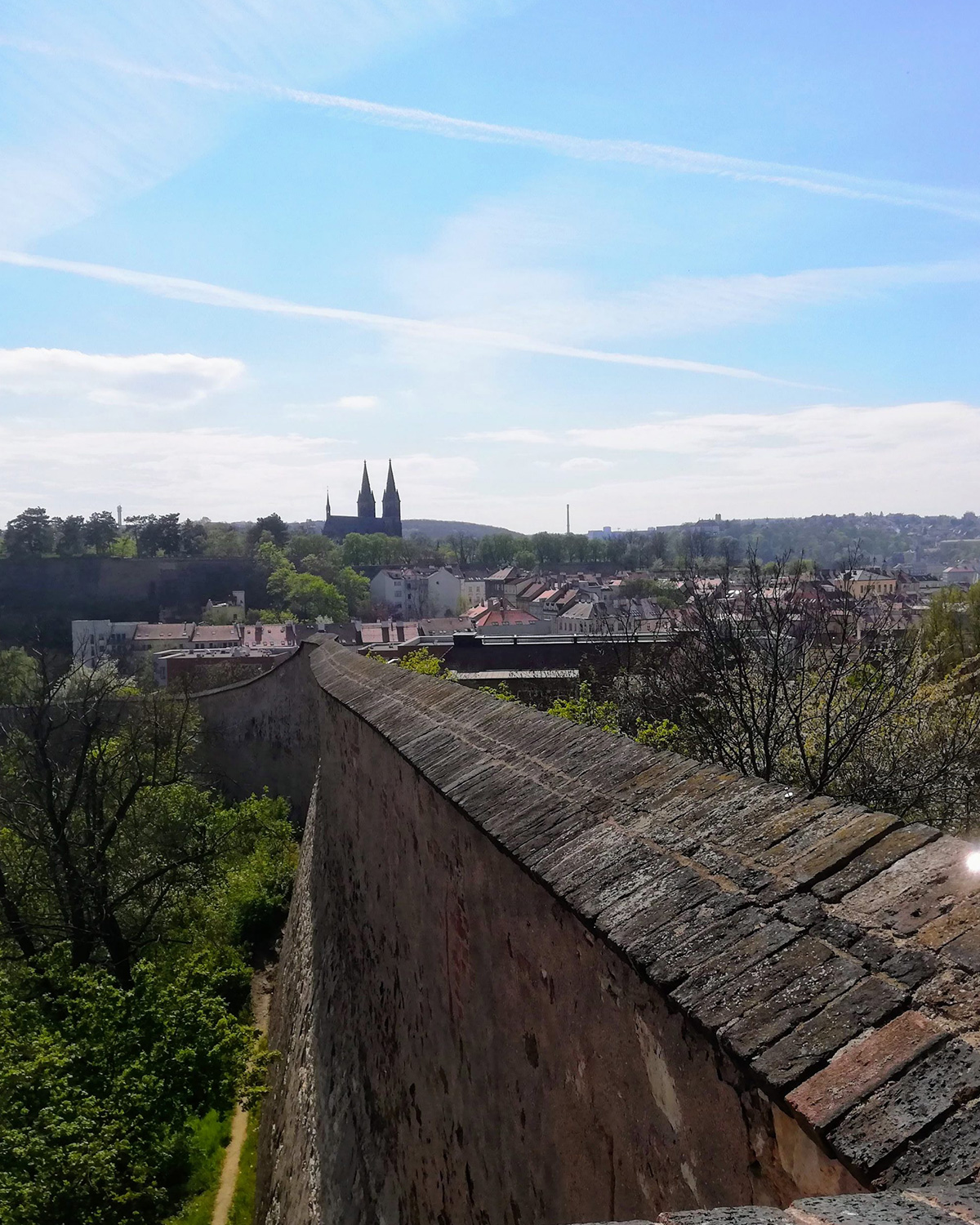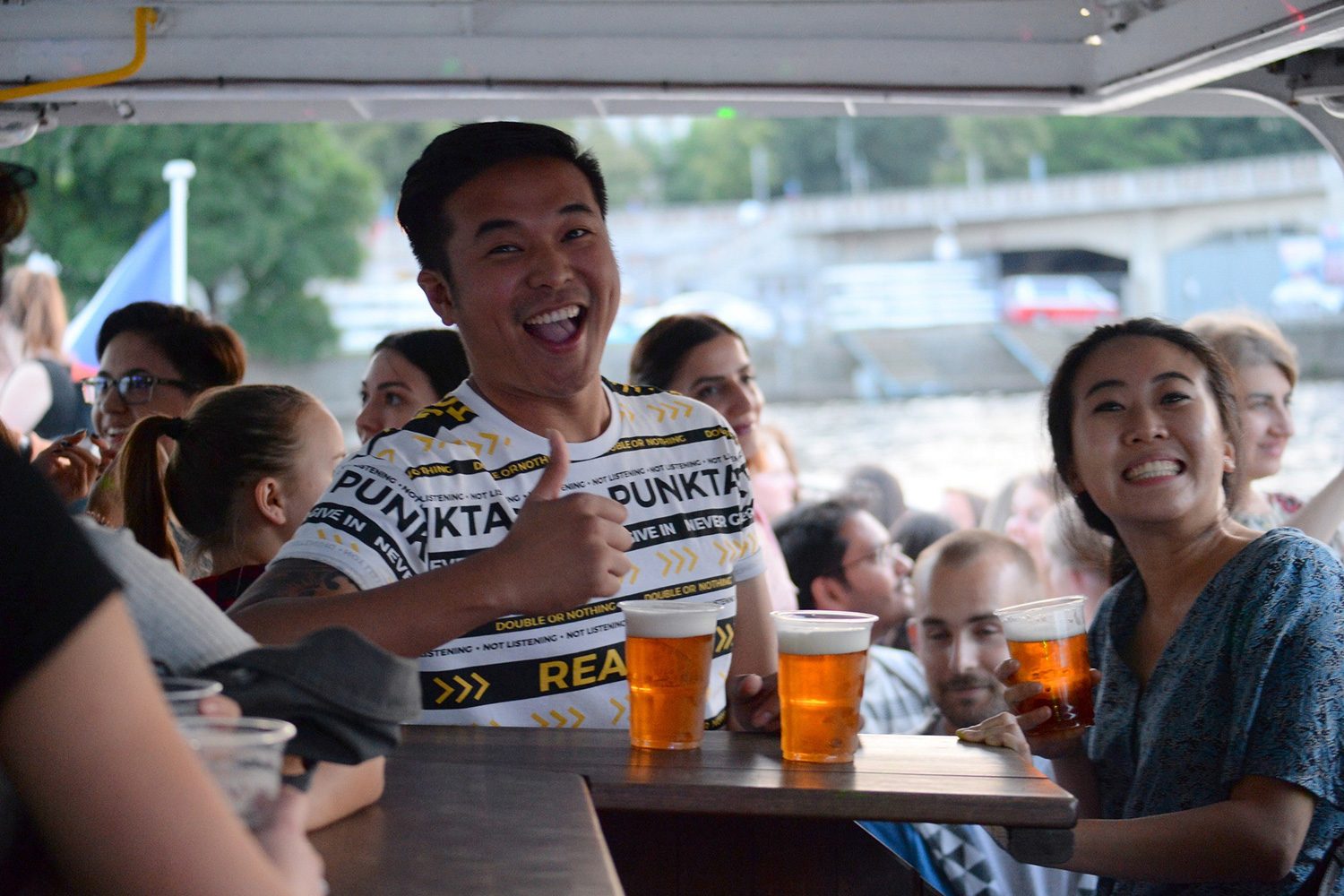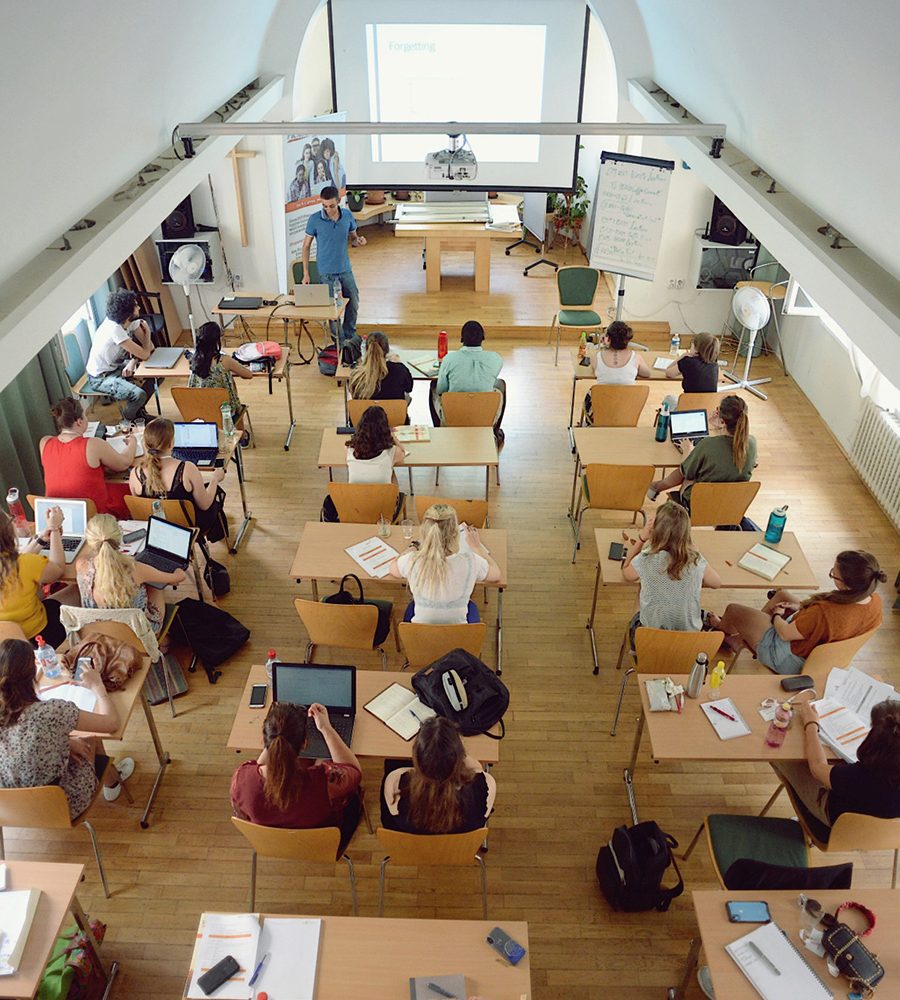
June 29th - July 6th, 2024
Education: The Future of School
The Summer School will address the issues of effective teaching and mediating knowledge in the current world. We will explore the ways a teacher contributes to child development starting from the early days to the lifelong learning processes. We will explore the new trends in teaching and look into their effectiveness. As well as examining how other social agents – parents, tutors and peers (may) contribute to the education process.
About Program
It invites students to discuss the ideas around current issues in education with faculty members, academics, researchers, professionals, as well as fellow students of various academic and cultural backgrounds. We will exchange ideas and seek answers to the questions, such as: What is the purpose of education
and how should our education system be designed for the modern world? How can schools adapt to the rapid growth of information technologies and shifting economic, political and social systems? What will the role of the teacher be in the modern educational system? What skills should be taught in today’s world?
Topics:
- changing the world and education
- academic, social and emotional learning, and student success
- learning disabilities and attention deficit disorders: research and practical implications
- digital learning: digital future
- education system in the Czech Republic
- future of school
*Please be aware that the course content is subject to possible revisions. While we have outlined the current topics and modules, there may be adjustments or updates throughout the duration of the course to ensure that we provide you with the most relevant and up-to-date information.
The Summer School will address the issues of effective teaching and mediating knowledge in the current world. We will investigate what is the role of the teacher starting from the early days to the lifelong learning processes; it will explore the new trends in teaching and look into their effectiveness. We will also examine how other social agents – parents, tutors and peers – (may) contribute to the education process.
The program will therefore enable students to learn key concepts and discuss critical issues surrounding the field, eventually providing them with a broad, international perspective on current discussion on education.
Changing World and Education
Transformation is one of our concerns: we live in a time of radical global, societal and systemic changes that present not only opportunities but also threats. Classes will scan the external surroundings of our educational institutions in all important aspects (globalization, population and technology developments) in order to think about the role of education in relation to this renewed societal background. The traditional education system, established during the beginning of the industrial revolution, was inspired by the need for specialization and serial mass production and no longer suits to the present “knowledge society”. We find ourselves in time of a paradigm shift, with a crucial need to conceptualize how future education should look like.
Academic, Social and Emotional Learning, and student success
Growing emphasis on academic success, as well as on high stakes assessment and accountability for schools, necessitates placing an emphasis on social and emotional learning more than ever before. Research evidence supports the relationship between social and emotional learning and school success, but this crucial link is frequently ignored. In this lecture, we will explore research evidence documenting the connections between the different types of learning, as well as the many benefits stemming from social and emotional learning to support cognitive development, enhance focus and motivation, as well as increase student confidence and success.
School-family partnerships: Maximizing the learning benefits for all students
Parental involvement has been shown to be one of the strongest predictors of children’s and adolescents’ academic success. Yet, in many cases, it remains an untapped resource. Especially as children enter adolescence, parental involvement declines and home-school partnerships are neither pursued nor desired. In this lecture, we will discuss the various benefit of parent involvement across the developmental span of primary and secondary schooling. We will also explore specific strategies to maximize parental involvement and increase the learning benefits of all students.
Learning disabilities and attention deficit disorders: Research and practical implications
Learning disabilities are the largest category of disability in the U. S., as well as in many countries around the world. The number of students diagnosed with attention deficit disorders has also been on the rise in recent years. In this lecture, the etiology and cognitive, academic, social, and emotional characteristics of individuals with learning disabilities and attention deficit disorders will be discussed. Best ways to enhance the learning benefits of students with such disabilities will also be discussed.
Digital learning: digital future
Modern technology not only changes the ways by which teaching is accomplished, but also the content being taught. Learners today are versed in technology and this makes a profound difference to the ways they learn. The session will consider issues such as personalized learning, mobile learning and interactivity.
Education system in the Czech Republic
We study transformation of school culture and current situation in the Czech Republic. The course will also provide results of the research on new multicultural education programs. We will also look into “Be Perfect” Pressure phenomena and how it is developing in the Czech context.
Future of School
“Every education system has been reformed with no use, because it is only improving the broken model. What we need is not evolution, but revolution of education. The system has to be transferred into something else.” Ken Robinson
The common denominator of various innovations and alternatives in education is a return to the natural learning before “industrial deviation”. A bright new current role of schools is also to cultivate skills needed to survive various types of crises.
Day 1
- 12.00 – 18.00 Registration
- 19.00 – 19.30 Orientation / Ice Breaking Session
- 20.00 Welcome Dinner
Day 2
- 09.30 – 10.00 Introduction
- 10.00 – 11.15 Lecture 1
- 11.15 – 11.30 Coffee Break
- 11.30 – 12.45 Lecture 2
- 13.00 Lunch
- 15.00 Tours of Prague
Day 3
- 09.30 – 10.45 Lecture 3
- 10.45 – 11.00 Coffee Break
- 11.00 – 12.15 Lecture 4
- 12.15 Lunch
- 16.00 Pragulic Tour
Day 4
- 09.30 – 10.45 Lecture 5
- 10.45 – 11.00 Coffee Break
- 11.00 – 12.15 Lecture 6
- 12.15 Lunch
- 14.00 – 15.15 Lecture 7
- 15.15 – 15.30 Coffee Break
- 15.30 – 16.45 Lecture 8
- 19.00 Happy Hour
Day 5
- 10.00 Free Day (Choose from 4 whole-day trips)
- 19.00 Dinner
- 21.00 Boat Tour
Day 6
- 09.30 – 10.45 Lecture 9
- 10.45 – 11.00 Coffee Break
- 11.00 – 12.15 Lecture 10
- 12.15 Lunch
- 14.00 – 15.15 Leccture 11
- 15.15 – 15.30 Coffee Break
- 15.30 – 16.45 Lecture 12
- 17.00 Guest Lecture
Day 7
- 09.30 – 10.45 Lecture 13
- 10.45 – 11.00 Coffee Break
- 11.00 – 12.15 Lecture 14
- 12.15 Free Time
- 18.00 FAREWELL PARTY
Day 8
- Departure
- Earlybird application deadline – February 10th
- Final Application deadline – May 1st
- All students will be informed about the admission decision by May 31st
- If accepted, program fee must be paid within 14 days after receiving acceptance letter
- Day 1 (29. 6. 2024) Registration day (12 p.m. – 6 p.m.)
- Day 7 (5. 7. 2024) End of program and Farewell party
- Day 8 (6. 7. 2024) – Departure
The Summer School will address the issues of effective teaching and mediating knowledge in the current world. We will investigate what is the role of the teacher starting from the early days to the lifelong learning processes; it will explore the new trends in teaching and look into their effectiveness. We will also examine how other social agents – parents, tutors and peers – (may) contribute to the education process.
The program will therefore enable students to learn key concepts and discuss critical issues surrounding the field, eventually providing them with a broad, international perspective on current discussion on education.
Changing World and Education
Transformation is one of our concerns: we live in a time of radical global, societal and systemic changes that present not only opportunities but also threats. Classes will scan the external surroundings of our educational institutions in all important aspects (globalization, population and technology developments) in order to think about the role of education in relation to this renewed societal background. The traditional education system, established during the beginning of the industrial revolution, was inspired by the need for specialization and serial mass production and no longer suits to the present “knowledge society”. We find ourselves in time of a paradigm shift, with a crucial need to conceptualize how future education should look like.
Academic, Social and Emotional Learning, and student success
Growing emphasis on academic success, as well as on high stakes assessment and accountability for schools, necessitates placing an emphasis on social and emotional learning more than ever before. Research evidence supports the relationship between social and emotional learning and school success, but this crucial link is frequently ignored. In this lecture, we will explore research evidence documenting the connections between the different types of learning, as well as the many benefits stemming from social and emotional learning to support cognitive development, enhance focus and motivation, as well as increase student confidence and success.
School-family partnerships: Maximizing the learning benefits for all students
Parental involvement has been shown to be one of the strongest predictors of children’s and adolescents’ academic success. Yet, in many cases, it remains an untapped resource. Especially as children enter adolescence, parental involvement declines and home-school partnerships are neither pursued nor desired. In this lecture, we will discuss the various benefit of parent involvement across the developmental span of primary and secondary schooling. We will also explore specific strategies to maximize parental involvement and increase the learning benefits of all students.
Learning disabilities and attention deficit disorders: Research and practical implications
Learning disabilities are the largest category of disability in the U. S., as well as in many countries around the world. The number of students diagnosed with attention deficit disorders has also been on the rise in recent years. In this lecture, the etiology and cognitive, academic, social, and emotional characteristics of individuals with learning disabilities and attention deficit disorders will be discussed. Best ways to enhance the learning benefits of students with such disabilities will also be discussed.
Digital learning: digital future
Modern technology not only changes the ways by which teaching is accomplished, but also the content being taught. Learners today are versed in technology and this makes a profound difference to the ways they learn. The session will consider issues such as personalized learning, mobile learning and interactivity.
Education system in the Czech Republic
We study transformation of school culture and current situation in the Czech Republic. The course will also provide results of the research on new multicultural education programs. We will also look into “Be Perfect” Pressure phenomena and how it is developing in the Czech context.
Future of School
“Every education system has been reformed with no use, because it is only improving the broken model. What we need is not evolution, but revolution of education. The system has to be transferred into something else.” Ken Robinson
The common denominator of various innovations and alternatives in education is a return to the natural learning before “industrial deviation”. A bright new current role of schools is also to cultivate skills needed to survive various types of crises.
Day 1
- 12.00 – 18.00 Registration
- 19.00 – 19.30 Orientation / Ice Breaking Session
- 20.00 Welcome Dinner
Day 2
- 09.30 – 10.00 Introduction
- 10.00 – 11.15 Lecture 1
- 11.15 – 11.30 Coffee Break
- 11.30 – 12.45 Lecture 2
- 13.00 Lunch
- 15.00 Tours of Prague
Day 3
- 09.30 – 10.45 Lecture 3
- 10.45 – 11.00 Coffee Break
- 11.00 – 12.15 Lecture 4
- 12.15 Lunch
- 16.00 Pragulic Tour
Day 4
- 09.30 – 10.45 Lecture 5
- 10.45 – 11.00 Coffee Break
- 11.00 – 12.15 Lecture 6
- 12.15 Lunch
- 14.00 – 15.15 Lecture 7
- 15.15 – 15.30 Coffee Break
- 15.30 – 16.45 Lecture 8
- 19.00 Happy Hour
Day 5
- 10.00 Free Day (Choose from 4 whole-day trips)
- 19.00 Dinner
- 21.00 Boat Tour
Day 6
- 09.30 – 10.45 Lecture 9
- 10.45 – 11.00 Coffee Break
- 11.00 – 12.15 Lecture 10
- 12.15 Lunch
- 14.00 – 15.15 Leccture 11
- 15.15 – 15.30 Coffee Break
- 15.30 – 16.45 Lecture 12
- 17.00 Guest Lecture
Day 7
- 09.30 – 10.45 Lecture 13
- 10.45 – 11.00 Coffee Break
- 11.00 – 12.15 Lecture 14
- 12.15 Free Time
- 18.00 FAREWELL PARTY
Day 8
- Departure
- Earlybird application deadline – February 10th
- Final Application deadline – May 1st
- All students will be informed about the admission decision by May 31st
- If accepted, program fee must be paid within 14 days after receiving acceptance letter
- Day 1 (29. 6. 2024) Registration day (12 p.m. – 6 p.m.)
- Day 7 (5. 7. 2024) End of program and Farewell party
- Day 8 (6. 7. 2024) – Departure

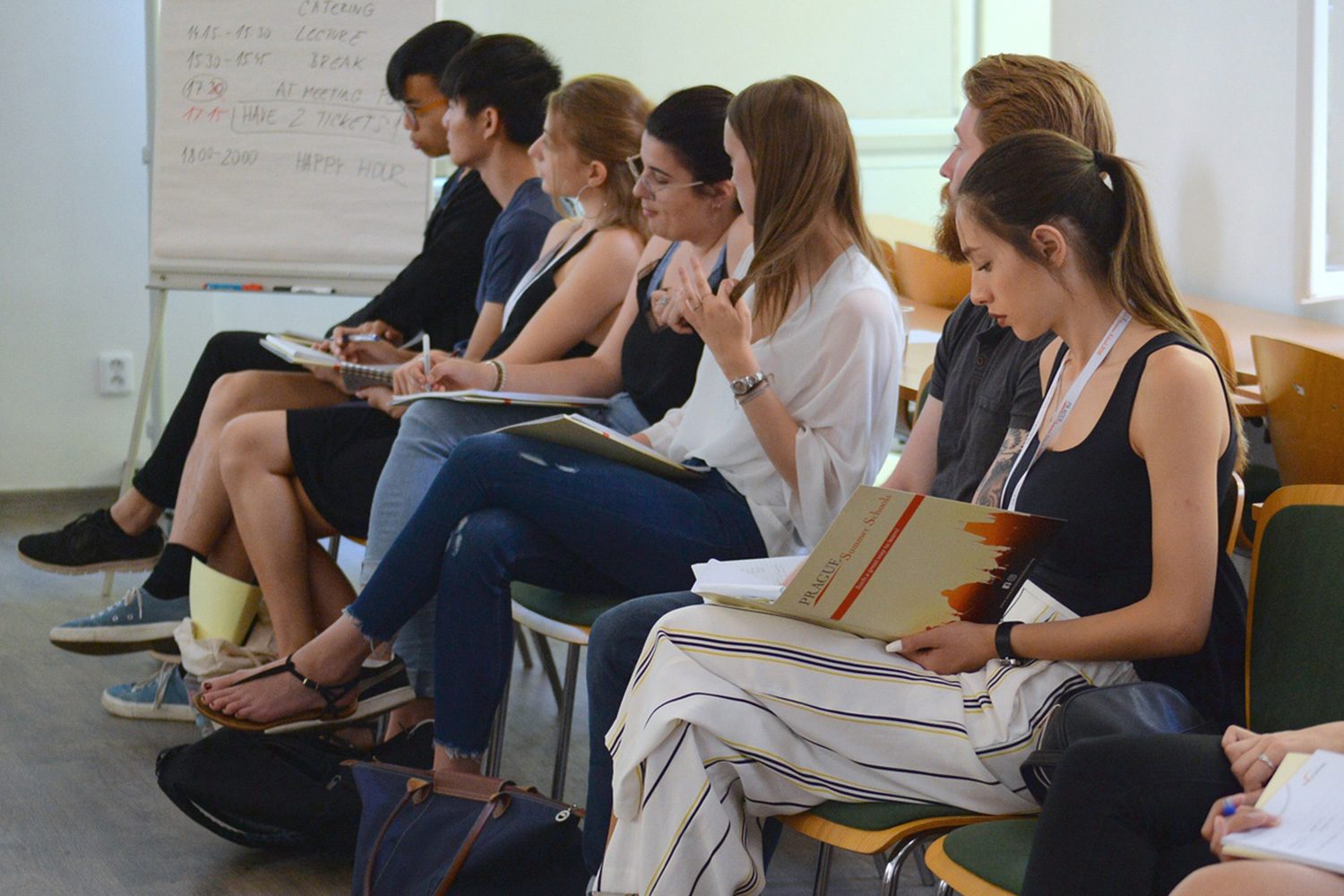
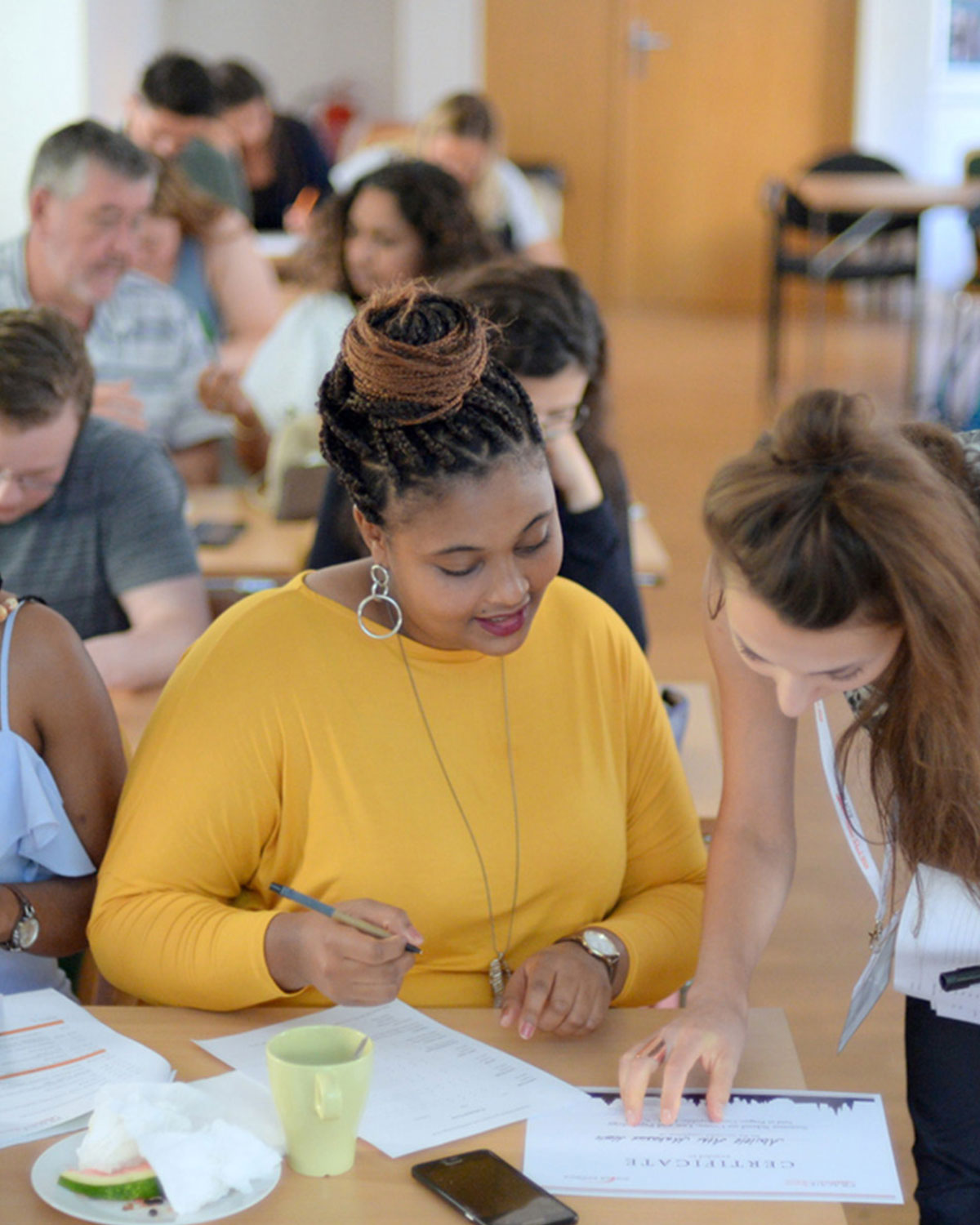
IMPROVE
Academic Foundations
EXPAND
Your Horizons
EXPERIENCE
Academic Study and Fun
Summer School on Development, Sustainability and Globalization
Enhance Your Learning Experience With These Lecturers
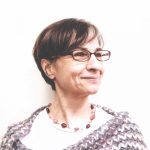
Eva Patrikakou Ph.D.
See Eva's BIO
Dr. Eva Patrikakou is a professor at the Department of Counseling and Special Education (CSE) at DePaul University of which is was also the inaugural Chair, and where she directs the special education graduate programs. Dr. Patrikakou has done extensive research in parent involvement for children with and without disabilities, and its effects on children’s academic, social, and emotional development. She has also investigated the preparedness of counselors and educators to implement multi-tiered systems of support (MTSS) and counseling. Dr. Patrikakou has taught children and adolescents from preschool to high school, and has also facilitated the development of school-family programming to enhance home-school relations. She has presented her work on parent involvement, school-family partnerships, and academic achievement, as well as MTSS in numerous national and international conferences, and has also published articles and chapters on these topics. Dr. Patrikakou has been systematically working to better inform practitioners, facilitate their outreach efforts, and bridge the research-practice gap, and has been the lead author on a series of informational materials for parents and school personnel on topics such as communication and homework.
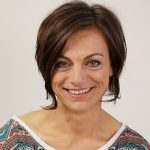
Dana Moree, Ph. D.
See Dana's BIO
Dana Moree graduated in Pastoral and Social Work from the Protestant Theological Faculty, Charles University, Prague, and in General Anthropology from the Faculty of Humanities, Charles University, Prague. Dana teaches multicultural education and profile of the civil sector at the Faculty of humanities, Charles University in Prague. She also organizes practical training for students. She finished her doctoral degree in this field at Universiteit voor humanistic, Utrecht in 2008. She has been involved in intercultural education since 1998. First she worked in Jabok – Academy for Social Pedagogy and Theology – and later, between 1998 and 2003, in the Salem Association. Since 2004 she has served as an assistant lecturer specializing in intercultural education at the Faculty of Humanities, Charles University in Prague, Department of Civil Sector Studies. In the same year, she also co-founded the PONTES Institute, where she has focused on cultural encounters as part of courses and seminaries that target the Czech-German issue. She published several books (How teachers cope with societal and educational transformation, Teachers on the Waves of transformation) and articles based on research.
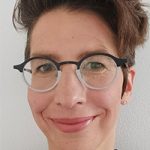
Mgr. Ivana Hokešová
See Ivana's BIO
Skills Builder methodology consultant whose aim is to facilitate the development of essential skills in elementary school children (and beyond). After completing her Master’s Degree in teaching, she had been working as an English teacher and became a teacher trainer upon completing her DELTA qualifications working for a state institution. She believes that soft skills are a prerequisite for success in life and is an avid supporter of all who try to push education in the Czech Republic forward.
